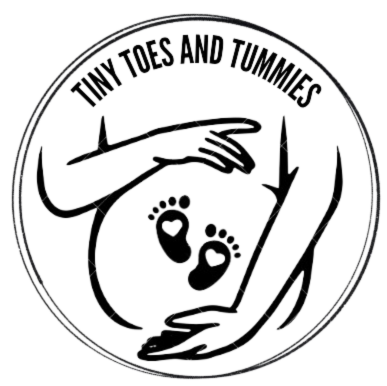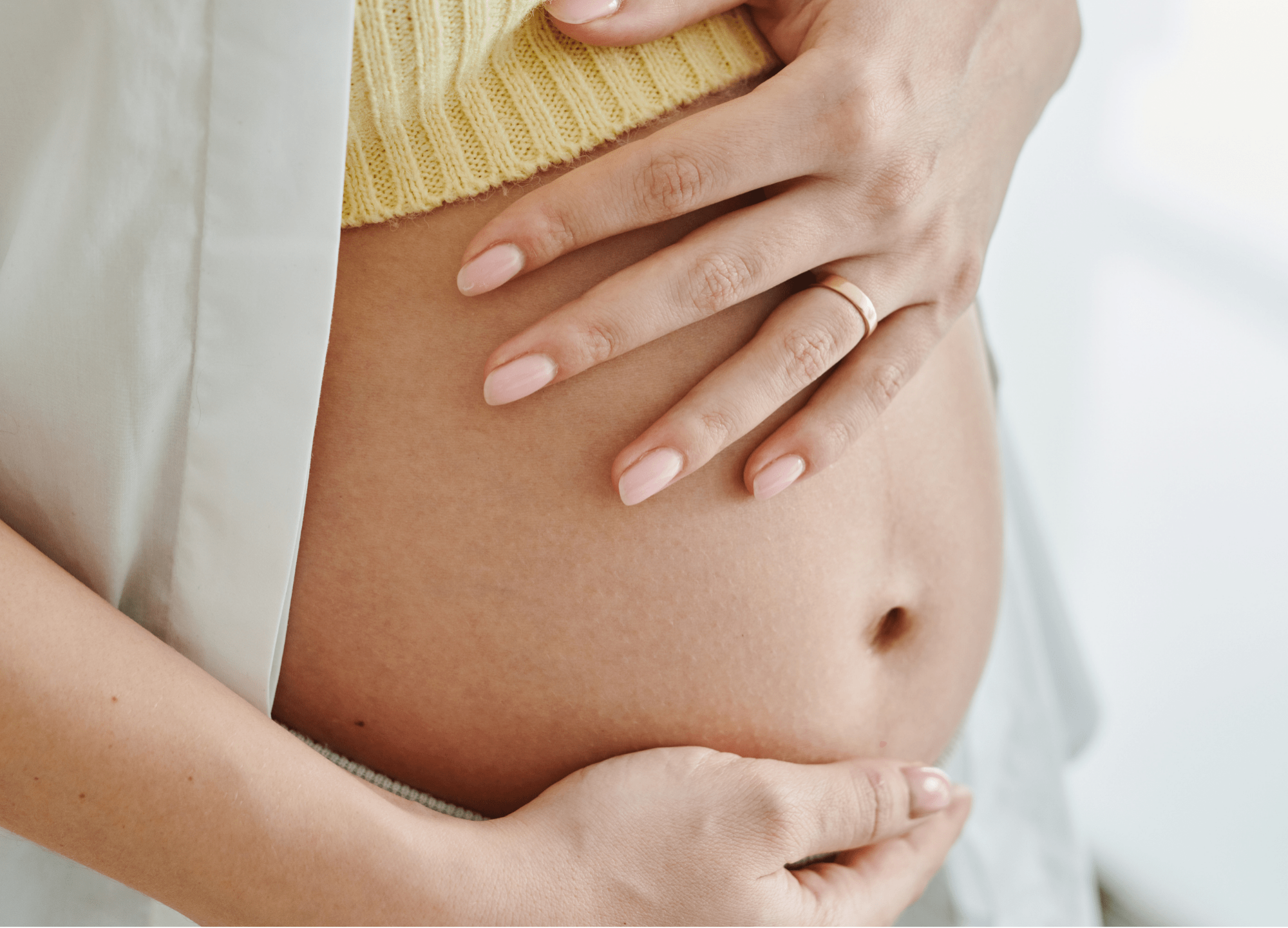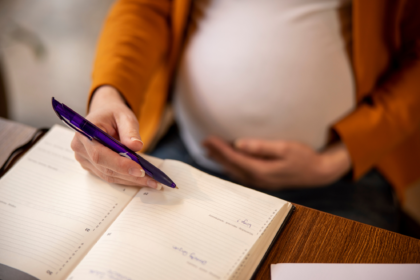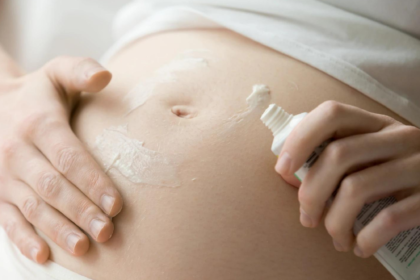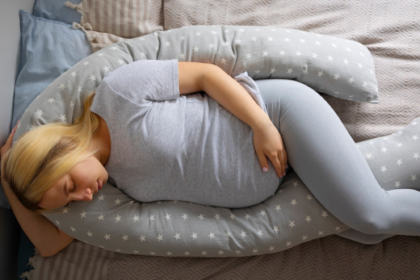The second trimester of pregnancy is often referred to as the “golden period”. It’s a time when many of the unpleasant symptoms of early pregnancy subside and you start to notice significant body changes in the second trimester. Your baby bump begins to grow more rapidly during this time, as your baby increases in size. This is a time of excitement for many expectant mothers, as the physical manifestation of life growing inside becomes more apparent. In this article, we’ll delve into the various body changes that occur during the second trimester.
Physical Body Changes in the Second Trimester
The Expanding Baby Bump
One of the most noticeable body changes in the second trimester is the rapid growth of your baby bump. As your baby increases in size, you might need to start considering maternity clothes to accommodate your expanding waistline. To ensure comfort, opt for loose, breathable clothing. Using a pregnancy pillow can also help support your growing belly and provide relief during sleep.
Stretch Marks
Stretch marks are a common body change in the second trimester. They appear as pink, red, or purple streaks that fade to silver over time. While they can’t be entirely prevented, keeping your skin hydrated can help reduce their severity. Natural remedies like coconut oil, vitamin E oil, or aloe vera can help keep your skin moisturized and elastic.
Weight Gain
Weight gain is a normal and necessary part of pregnancy. The second trimester is when most women start to put on weight more noticeably due to the growth of the baby, placenta, and amniotic fluid, as well as increased blood and fluid volume. Regular light exercise, like walking or prenatal yoga, can help manage healthy weight gain.
Musculoskeletal Changes
As your baby and uterus grow, they put pressure on your muscles and ligaments. This can lead to common pregnancy discomforts like back pain and hip pain. Gentle exercises and stretching can help alleviate these pains. Warm baths or a heating pad can also provide relief.
Changes in the Urinary System
Another body change in the second trimester is increased frequency of urination. As your uterus expands, it puts pressure on your bladder. To manage this, try to empty your bladder completely each time you go to the bathroom. Also, lean forward when urinating to help completely empty your bladder.
Varicose Veins
Increased blood volume and pressure from the growing uterus can lead to varicose veins, typically in the legs. Regular exercise, elevating your legs when possible, and avoiding standing for long periods can help manage this condition. Wearing compression stockings can also provide relief.
Edema (Swelling)
Many women experience swelling in their hands, face, legs, ankles, and feet due to fluid retention. This is another common body change in the second trimester. Reducing salt intake, drinking plenty of water, and elevating your feet can help reduce swelling. However, sudden or severe swelling should be reported to your healthcare provider as it could be a sign of preeclampsia.
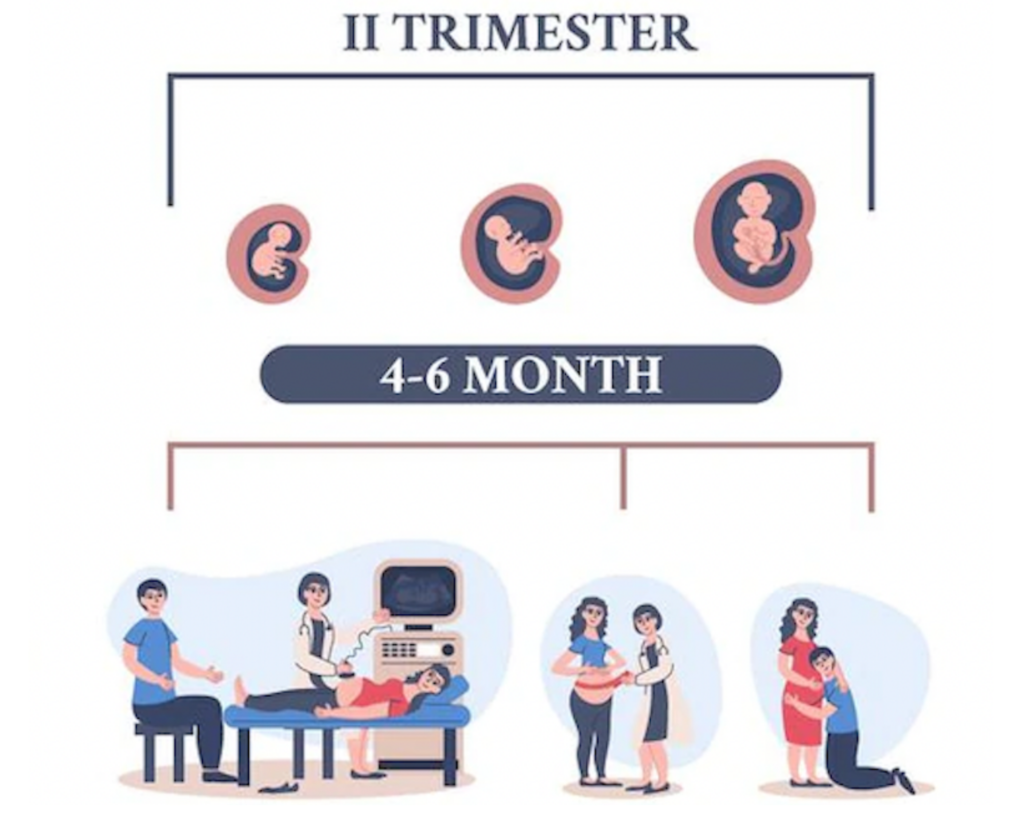
Hormonal Body Changes in the Second Trimester
Skin and Hair Changes
The hormonal changes that occur during pregnancy can have a significant impact on your skin and hair. Some women find that their hair becomes thicker and shinier, while others may experience increased acne. Drinking plenty of water, maintaining a balanced diet, and using gentle skincare products can help manage these changes.
Breast Changes
Your body begins preparing for breastfeeding during the second trimester. Your breasts will continue to grow and may become more tender. The areolas darken and increase in diameter. Using a good supportive bra and nipple creams can help alleviate discomfort.
Appetite Changes
With the morning sickness of the first trimester often subsiding, many women find their appetite increases during the second trimester. This is your body’s way of getting the extra calories it needs to support your growing baby. Eating small, frequent meals and focusing on nutrient-dense foods can help manage these changes.
Changes in Body Temperature
You might feel warmer than usual during pregnancy due to increased blood volume and hormonal changes. Dressing in layers can help you adjust to changing temperatures. Staying hydrated can also help regulate body temperature.
Emotional and Psychological Body Changes in the Second Trimester
Feeling Your Baby Move
One of the most exciting body changes in the second trimester is feeling your baby move. This is a special time of bonding between mother and baby, as you start to interact with your little one. Taking time each day to relax and focus on your baby’s movements can enhance this bonding experience.
Emotional Changes
The second trimester isn’t just about physical changes. Many women also experience emotional changes. Hormonal fluctuations can lead to mood swings, anxiety, and changes in sexual desire. Regular exercise, adequate rest, and talking about your feelings with a partner, friend, or mental health professional can help manage these emotional changes.
Health and Wellness Body Changes in the Second Trimester
Cardiovascular Changes
Your body produces more blood during pregnancy to support the growth of your baby. This can lead to changes in your cardiovascular system, including increased heart rate and blood pressure. Regular check-ups with your healthcare provider are important to monitor these changes.
Digestive System Changes
The second trimester can bring about changes in your digestive system as well. The relaxation of muscle tissue in the gastrointestinal tract, a result of increased progesterone, can lead to heartburn and constipation. Eating smaller, more frequent meals, staying hydrated, and increasing fiber intake can help manage these symptoms.
Changes in Immune System
Pregnancy alters the immune system to protect both you and your growing baby. This can make pregnant women more susceptible to certain illnesses. Regular hand washing, eating a balanced diet rich in vitamins and minerals, and getting adequate sleep can help boost your immune system.
Changes in Metabolism
Your metabolism increases during pregnancy to provide the necessary energy for your baby’s growth. This can sometimes lead to feelings of fatigue. Eating small, frequent meals can help maintain your energy levels. Including protein in your meals can also help keep your energy steady.
Respiratory Changes
Your respiratory system also adapts during pregnancy. You might find yourself taking more frequent, shallow breaths as your uterus expands and pushes against your diaphragm. Practicing good posture and deep, controlled breathing can help manage these changes.
Remember, every woman’s experience with pregnancy is unique. Not all women will experience all these body changes in the second trimester, and some may experience other changes not listed here. Always consult with your healthcare provider if you have any concerns about body changes during your second trimester.
FAQs
Now that we’ve explored the journey of the second trimester, you might have some questions brewing. Don’t worry, we’ve got you covered! In the following section, we answer some of the most frequently asked questions about body changes in the second trimester. Let’s dive in and clarify your queries!
Q: I’m noticing more acne during my second trimester, is this normal?
A: Yes, it’s quite common. The hormonal changes that occur during pregnancy can lead to increased oil production, which can cause acne. Using gentle, oil-free skincare products and maintaining a healthy diet can help manage these changes.
Q: What is the dark line running down my belly?
A: The Linea Nigra is a dark line that runs from your belly button to your pubic bone. It’s caused by the same hormones that cause the areolas to darken. It’s completely normal and usually fades after pregnancy.
Q: I’m experiencing swelling in my hands, is this normal?
A: Yes, swelling in the hands is common during pregnancy due to increased blood circulation and fluid retention. Try to avoid standing for long periods and keep your hands elevated when possible. However, sudden or severe swelling should be reported to your healthcare provider as it could be a sign of preeclampsia.
Q: My hair feels thicker and shinier, is this because of pregnancy?
A: Yes, many women notice changes to their hair during pregnancy. The increase in hormones can cause your hair to grow faster and fall out less, leading to thicker, fuller hair. Enjoy it while it lasts, as your hair will likely return to its normal condition after pregnancy.
Q: When will I start to feel my baby move?
A: Most women start to feel their baby move between 18 and 25 weeks of pregnancy, but this can vary. If this is your first pregnancy, you might not feel movement until closer to 25 weeks. In the beginning, it might feel like a fluttering or a gentle swirling motion. As your baby grows, the movements will become more distinct.
Q: I’ve noticed my breasts are growing and becoming more tender, is there anything I can do to alleviate this?
A: Breast growth and tenderness are common as your body prepares for breastfeeding. Wearing a supportive bra can help alleviate this discomfort. Some women also find that applying warm or cold compresses can provide relief.
Q: I’m experiencing changes in my appetite, is this normal?
A: Absolutely, with the morning sickness of the first trimester often subsiding, many women find their appetite increases during the second trimester. This is your body’s way of getting the extra calories it needs to support your growing baby. Eating small, frequent meals and focusing on nutrient-dense foods can help manage these changes.
Q: I’ve noticed changes in my body temperature, should I be worried?
A: It’s normal to feel warmer than usual during pregnancy due to increased blood volume and hormonal changes. Dressing in layers can help you adjust to changing temperatures. Staying hydrated can also help regulate body temperature.
Q: I’m having mood swings, is this normal?
A: Mood swings are common during pregnancy due to hormonal changes. It’s always good to talk about your feelings with a partner, friend, or mental health professional. Regular exercise and adequate rest can also help manage these emotional changes.
Q: I’m having varicose veins, what can I do?
A: Varicose veins can occur due to increased blood volume and pressure from the growing uterus. Regular exercise, elevating your legs when possible, and avoiding standing for long periods can help manage this condition. Wearing compression stockings can also provide relief.
